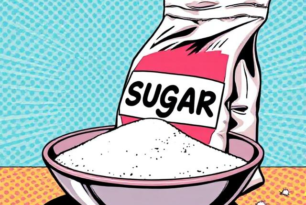You walk into a grocery store. It smells faintly of fruit, bleach, and artificial vanilla. The shelves are packed with colorful boxes, clever labels, and promises. Low-fat! High-protein! Keto-friendly! Heart-healthy! All-natural! Every aisle hums with products trying to convince you they care about your well-being.
But let’s be real: the food industry doesn’t care about your health. It cares about your habits. And if those habits keep you coming back for more — even if they slowly wear you down from the inside out — all the better for business.
This isn’t a conspiracy theory. It’s just capitalism in a lab coat.
Behind those smiling logos and “whole grain” stickers is an industry that has quietly mastered the science of overconsumption. Foods are engineered — yes, engineered — to bypass your natural hunger cues and light up your brain’s reward centers like a pinball machine. Salt, sugar, fat, crunch, melt, dopamine. Repeat.
And it works. We eat more than we mean to. More often than we should. We finish the bag. We go back for seconds. Not because we’re broken — but because this system is designed to make stopping feel like the unnatural choice.
Processed food isn’t just “convenient” — it’s dominant. It’s what’s cheapest, fastest, and most aggressively advertised. It shows up in school lunches, hospital vending machines, even food banks. You’d think something so everywhere would be built to nourish. But instead, it’s often stripped of nutrients, pumped with additives, and made shelf-stable through a cocktail of chemicals most of us can’t pronounce.
And we’ve grown up with it. Many of us were raised on snacks in neon packaging and frozen dinners with smiling penguins on the box. This food is part of our memories — our comfort. Which makes it harder to question. How can something so familiar be part of the problem?
But it is.
Rates of obesity, diabetes, heart disease, and autoimmune conditions are rising — and not just because people “don’t exercise enough.” The truth is harder: we’re being sold food that makes us sick, by an industry that markets it as wellness.
It’s a system that thrives on confusion. One day eggs are good, the next day they’ll kill you. Low-fat is in, then out, then back again with coconut oil. The science is constantly “evolving” — but the labels stay shiny, and the profits keep rolling in.
And while we’re trying to decode grams of sugar or guess whether our yogurt is lying to us, the real work goes undone: holding companies accountable, demanding transparency, shifting access, funding public health over private gain.
Because this isn’t just about willpower or personal responsibility. It’s about power — who holds it, who profits from it, and who gets left dealing with the consequences.
But it doesn’t have to stay this way.
Change won’t come in a single shopping trip, or by deleting a food app. It starts with awareness. With asking better questions. With supporting local food systems, cooking a little more when we can, teaching kids what real food looks and tastes like. It starts when we stop believing the industry’s promises — and start believing that we deserve better.




